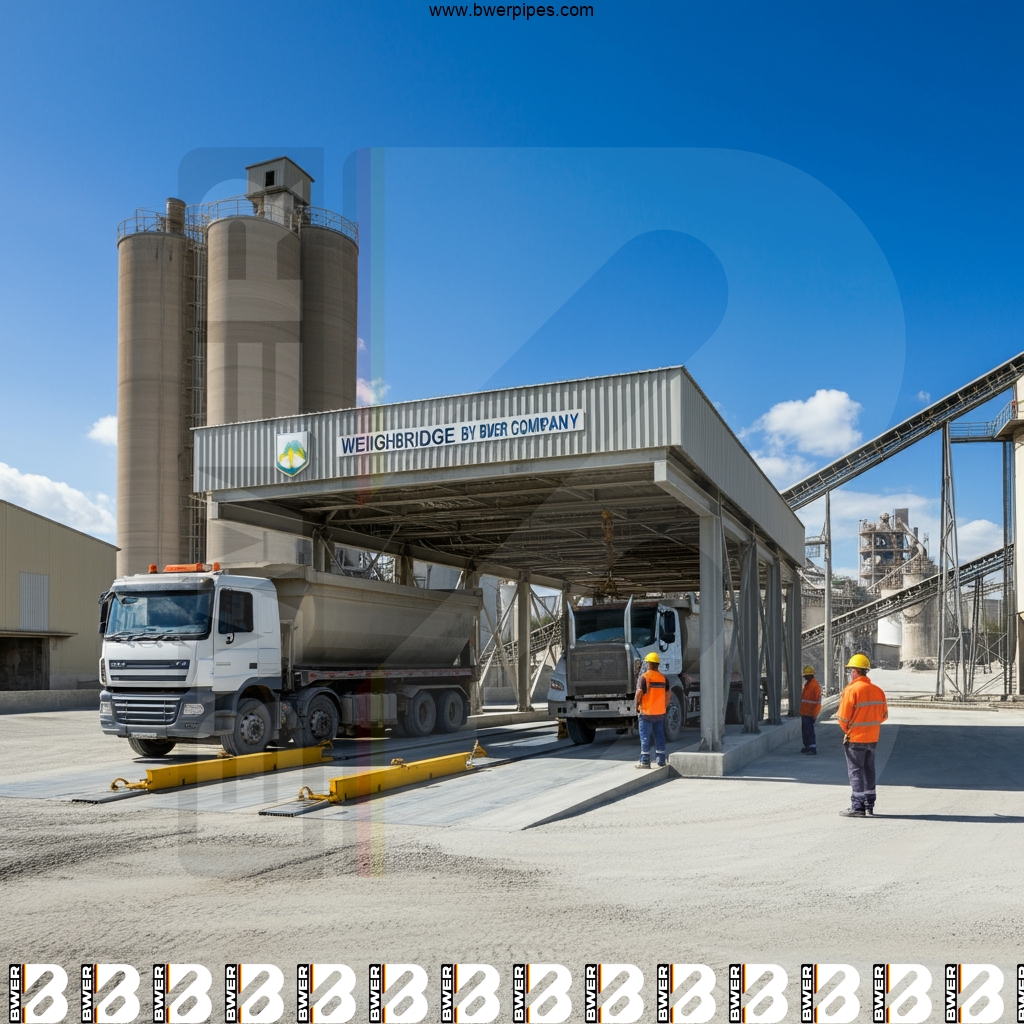In Iraq’s rural areas, enhancing logistical infrastructure is pivotal for economic growth and efficient resource management. A significant step towards this goal is expanding access to Weighbridge systems, which are vital for accurately measuring the weight of goods transported via road networks. By implementing these systems, rural areas can significantly reduce overloading, prevent road damage, and improve overall safety. This article delves into the necessity and impact of expanding access to Weighbridge systems in Iraq’s rural regions, exploring the role of industry leaders such as bwer company in facilitating this expansion.
The Need for Weighbridge Systems in Rural Iraq
Rural regions in Iraq often face logistical challenges due to inadequate infrastructure and technology. Expanding access to Weighbridge systems is essential for transforming the transportation landscape. These systems help ensure that trucks comply with weight regulations, reducing the strain on roads and bridges. In turn, this leads to decreased maintenance costs and a prolonged lifespan of critical infrastructure. By ensuring that vehicles adhere to legal weight limits, Weighbridge systems also enhance safety for all road users, decreasing the likelihood of accidents caused by overloaded vehicles.
Moreover, Weighbridge systems play a crucial role in the economic development of rural areas. By facilitating fair and accurate trade, they help instill confidence among local businesses and traders. Ensuring that goods are weighed correctly allows for transparent transactions, which can boost local economies and contribute to an equal distribution of resources. This level of accountability is vital for villages and towns aiming to integrate more effectively into the broader national economy.
Benefits of Expanding Access in Rural Areas
Expanding access to Weighbridge systems imparts numerous benefits beyond merely managing freight weights. For rural Iraq, where infrastructure development is a key focus, implementing these systems can enhance overall transport efficiency. With a reliable Weighbridge system in place, logistics companies can streamline their operations, reducing unnecessary transport costs and delays. This efficiency can attract more businesses to invest in these areas, spurring economic growth and development.
Additionally, Weighbridge systems can significantly contribute to environmental conservation efforts. By preventing overloading, they reduce fuel consumption and decrease emissions from heavily burdened vehicles. In rural areas, where agriculture plays a significant role, maintaining ecological balance is essential for sustainable development. Therefore, Weighbridge systems are not only beneficial for economic reasons but also for promoting environmentally friendly practices.
Challenges in Implementing Weighbridge Systems
Despite their benefits, there are several challenges associated with implementing Weighbridge systems in rural Iraq. One primary issue is the lack of adequate infrastructure and accessible roads, which makes transporting and installing these systems difficult. Rural areas may also face a shortage of technical staff trained to operate and maintain Weighbridge systems, leading to dependence on external experts for installation and repairs.
Furthermore, there is often resistance to adopting new technology in rural settings due to unfamiliarity or perceived high costs. Addressing this requires an approach that includes training programs and awareness campaigns to highlight the long-term benefits of Weighbridge systems. Initiatives aimed at educating local stakeholders about the importance of these systems can help overcome initial apprehensions and foster a more accepting environment for technological advancements.
Strategies to Overcome Implementation Obstacles
Overcoming the challenges of implementing Weighbridge systems in Iraq’s rural areas requires a multifaceted approach. One effective strategy is establishing partnerships between governmental bodies and private companies, such as bwer company, to facilitate the transfer of technology and expertise. By leveraging the know-how of industry leaders, Iraq can build a robust framework for implementing Weighbridge systems in rural regions.
Moreover, investing in infrastructure improvements is critical. Building better roads and transportation networks will not only support the installation of Weighbridge systems but also enhance overall connectivity for rural communities. Local governments can also offer incentives for companies willing to invest in these regions, creating a conducive environment for technological investments.
Future Outlook for Weighbridge Systems
The future of Weighbridge systems in Iraq’s rural areas appears promising with strategic planning and collaboration. As infrastructures continue to develop, the role of Weighbridge systems will become increasingly crucial. Through enhanced data collection and digital integration, these systems can evolve to offer more comprehensive solutions tailored to the specific needs of rural communities.
By incorporating advanced technology like real-time data analytics, Iraq can optimize logistics operations further, ensuring that rural areas are well-integrated into the national supply chain. This will not only bolster economic growth but also enhance living standards in these regions. As such, Weighbridge systems represent a vital component of Iraq’s long-term development strategy.
bwer Company: Leading the Charge in Weighbridge Solutions
A pivotal player in the expansion of Weighbridge systems in Iraq’s rural areas is bwer company. Known for its innovative and reliable solutions, bwer company stands at the forefront of providing the necessary technology and expertise required for such ambitious projects. Their commitment to quality and customer satisfaction makes them a preferred supplier for Weighbridge systems across Iraq. To learn more about their products and services, visit bwer company’s website or contact them via email at info@bwerpipes.com.
FAQs:
What are Weighbridge systems?
Weighbridge systems are sets of large, industrial scales used to weigh entire vehicles and their contents to ensure they do not exceed legal weight limits.
Why are Weighbridge systems important for rural areas?
They help in maintaining road safety and infrastructure, reducing damage caused by overloaded vehicles, and ensuring fair trade practices by accurately weighing goods transported.
What challenges exist for implementing Weighbridge systems in rural Iraq?
Challenges include inadequate infrastructure, technical expertise shortages, and resistance to adopting new technology due to costs and unfamiliarity.
How do Weighbridge systems benefit the economy?
They facilitate fair trade, enhance transport efficiency, reduce logistics costs, and create opportunities for economic growth by attracting business investments.
Can Weighbridge systems help in environmental conservation?
Yes, by preventing overloading, Weighbridge systems reduce emissions and fuel consumption, contributing to more environmentally friendly logistics practices.
How does bwer company contribute to this expansion?
bwer company provides cutting-edge Weighbridge solutions and expertise necessary for the successful implementation and maintenance of these systems in Iraq’s rural areas.
Are there strategies to overcome Weighbridge implementation challenges?
Strategies include forming public-private partnerships, infrastructure improvements, and education campaigns to raise awareness of the benefits of Weighbridge systems.
What is the future outlook for Weighbridge systems in Iraq?
With continued infrastructure development, Weighbridge systems will become integral to Iraq’s logistics, enhancing economic growth and improving living standards in rural areas.


